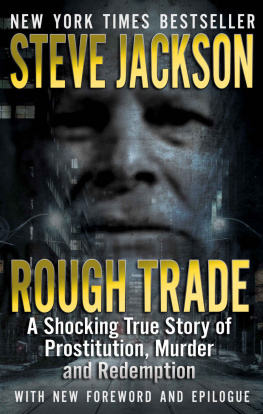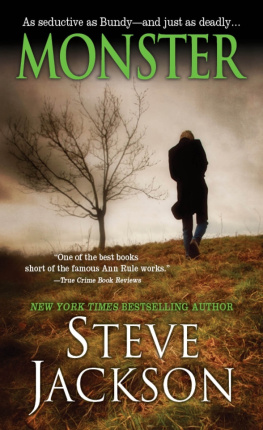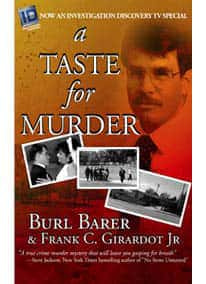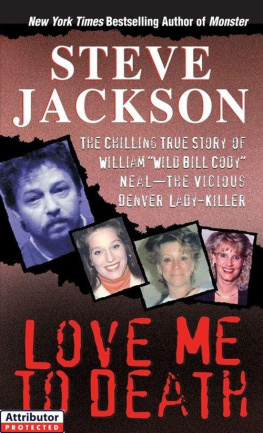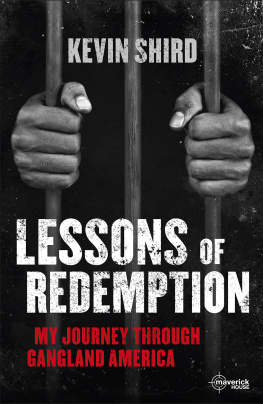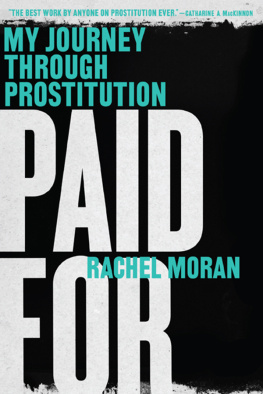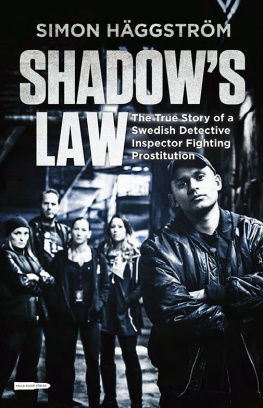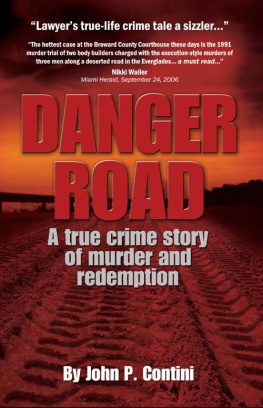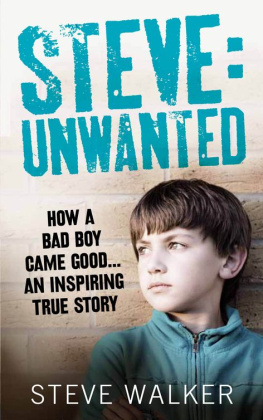ROUGH TRADE
A Shocking True Story of Prostitution, Murder and Redemption
WITH NEW FOREWORD AND EPILOGUE
NEW YORK TIMES BESTSELLER
STEVE JACKSON

WildBluePress.com
Some names and identifying details have been changed to protect the privacy of individuals.
ROUGH TRADE published by:
WILDBLUE PRESS
P.O. Box 102440
Denver, Colorado 80250
Publisher Disclaimer: Any opinions, statements of fact or fiction, descriptions, dialogue, and citations found in this book were provided by the author, and are solely those of the author. The publisher makes no claim as to their veracity or accuracy, and assumes no liability for the content.
Copyright 2016 by Steve Jackson
All rights reserved. No part of this book may be reproduced in any form or by any means without the prior written consent of the Publisher, excepting brief quotes used in reviews.
WILDBLUE PRESS is registered at the U.S. Patent and Trademark Offices.
978-1-942266-57-0 Trade) Paperback ISBN
978-1-942266-58-7 eBook ISBN
Interior Formatting and Book Cover Design by Elijah Toten
Totencreative.com
Other WildBlue Press Books By Steve Jackson
BOGEYMAN: He Was Every Parents Nightmare
Wbp.bz/Bogeyman
NO STONE UNTURNED: The True Story of The Worlds Premier Forensic Investigators
Wbp.bz/NSU
SMOOTH TALKER: Trail of Death
Wbp.bz/st
Table of Contents
He who is without sin among you, let him throw a stone at her first.
John 8:7
August 23, 2016
Some true crime stories are like onions. I dont really know what Ive got until Ive peeled back the layers. Such was the case with my true crime book ROUGH TRADE: A Shocking True Story of Prostitution, Murder and Redemption , which I wrote in 1999 and published in 2000 following the murder trial of Robert Riggan in Jefferson County, Colorado.
At first glance, the May 1997 death of a young prostitute, Anita Jones, allegedly at the hands of Riggan, a drifter who lived in the shadows of Denvers notorious East Colfax Avenue, was a sad but not particularly unique or gripping story. It certainly didnt have the drama of the murder of a child beauty queen that had occurred just a few months earlier in her parents home in Boulder thirty miles to the north, or the impact of the depredations of the brutal killer Thomas Luther, who was also tried in Jefferson County, Colorado and became the subject of my first true crime book MONSTER. It is a sobering fact that the people who are largely invisible to us in life, except as nuisances or undesirable, are even of less consequence when they die violently or find themselves in the criminal system. Its almost as though we as a society, including authors, expect that outcome and these ruined lives are material for police blotters, crime statistics and nothing more.
As an author trying to both make a living, as well as examine subjects that interest me and fit my desire to write books that have something to say about the human condition, I try to choose my stories carefully. There are, after all, only so many hours in a day and only so many books in an authors career. Its not the blood and gore, or sexual titillation, Im looking for when choosing a true crime story; Im interested in the psychology and ripple effect of violent crime, and the back stories of the human beings involved: killers, victims, law enforcement, those involved in the justice system, and the community.
And as an author, Im interested in the technical aspects of professional book writing. Does it have the structural components of a good story: a dramatic beginning, a strong storyline, a climatic moment, and a satisfying resolution? Are the characters--like actors in a playinteresting and compelling? Are there heroes and villains? A good supporting cast? Is there some message, or theme, I can mine like a vein of gold that will reward my readers for giving me their time and hard-earned money?
When I considered the Jones/Riggan case, I really didnt know how true crime readers would react to a sordid tale about prostitution and a murder trial that hardly made the news in Denver, much less anywhere else. I knew it was a solid story. The battle in court between the prosecution and defense attorneys was a good one with both sides acquitting themselves well. There was interesting and conflicting testimony from the expert witnesses on such topics as coup and counter-coup head injuries, accident recreation models, and post-mortem medical examinations. It was also the first potential death penalty case to test Colorados then-new statute that left the decision to a three-judge panel, instead of a jury. But that alone wasnt enough to separate this tragedy and its legal machinations from a million others.
However, this was one of those stories where the main characters--people who otherwise existed only on the margins of society--made it more than a court procedural. There was the victim, Anita Jones, a young mother whod followed a man from her home back east to Colorado where hed got her hooked on crack cocaine, then used her body to make money, and subsequently abandoned her. What happened to her on a lonely dirt road in the mountains west of Denver made medical professionals whod seen it all cry during their futile efforts to save her. However, there wasnt enough about Anita to build a story around her; she was the raison detre that there even was a trial, but her short sad life could not carry a book. Anita was unknown, except to her family and friends, the police detectives who went after her killer, and the people she met on Denvers seamy underbelly, one of them being Joanne Cordova and the other Robert Riggan.
In writing terms, Joanne was the flawed heroine seeking redemption. But every hero needs a villain and for that there was Robert Riggan.
On the surface, there wasnt much to Riggan. He was no Ted Bundy, whose good looks, charming ways and evil cunning has enthralled true crime readers through multiple books. Nor was he a serial killer of historic proportions like an H.H. Holmes, or smooth-talking sociopath Roy Melanson, the serial killer in my book SMOOTH TALKER. Riggan was a physically scarred, psychologically stunted, inconsequential little man who lived on the fringes of society and sought the solace of prostitutes, as well as the release of violent sexual acts. Not much there to make him a villain worth writing about.
It wasnt until the horrifying story of his childhood emerged in court through evidence introduced by his lawyers through family members, counselors and psychologists that a multi-layered picture of Riggan emerged. Listening to some of that testimony, as well as researching his past on my own, I couldnt help but think that sometimes the monsters in our real life nightmares are created in the homes and by the people who are supposed to represent safety to a child.
Ive heard a lot of self-serving testimony from and about defendants blaming their childhoods and other people for their actions; some of its real enough, but a lot of it is manufactured in an attempt to beat the system. But the abuse and depravity that were clearly part of Robert Riggans early life were such that I could feel sorrow for that frightened child, even if I believed the man he had become was a murderer, possibly a serial sexual predator, as some of the evidence indicated. His past didnt excuse what hed done, but it helped explain what he had become.
Still, neither Anita Jones or Robert Riggan was why I decided to write ROUGH TRADE. That reason was Joanne Cordova.
Joanne, too, was sexually abused as a child by a friend of her parents. But it seemed that shed overcome it as she grew up a normal teenager and eventually entered the Denver Police Academy, where she graduated and became a well-regarded officer. And yet those early seeds of abuse, as well as the influence of her older boyfriend--a corrupt police officer--might have been what lead to her own downfall as a cop and eventually to crack addiction. Years later, she was working as a prostitute on Denvers notorious East Colfax Avenue when she befriended the younger Anita Jones. Shed also met Riggan and was subjected to his violent sexual appetite; an experience she felt lucky to escape with her own life, perhaps owing to her greater experience at handling such men than Jones.

